One year on, the dark plumes of war continue to billow over Gaza and have now become an unsettling fixture in Lebanon’s skies. The crisis began on October 7th, when Hamas militants staged an unprecedented breach of Israel’s fortified borders, unleashing the deadliest attack in the nation’s history. In response, Israeli airstrikes have pounded the enclave, killing thousands of Palestinians. As the violence escalates, tensions have ignited across the Middle East, transforming the region into a volatile powder keg, with the threat of broader conflict looming ever larger.
If Israel’s initial goal was to dismantle Hamas, its operations in Gaza have now gone well beyond merely degrading its capabilities. Instead, Benjamin Netanyahu, Israel’s hardline Prime Minister, has found new pretexts to widen the contours of the deadly conflict, extending it into Lebanon, where his forces claim to be engaged in a broader struggle against Hezbollah, the Iranian-backed group.
This escalation was exemplified in September when Israel’s Mossad orchestrated an unprecedented breach of Hezbollah’s security by planting explosives inside 5,000 Taiwan-made pagers ordered by the Lebanese group. The resulting mass detonations across Lebanon killed nine people and injured nearly 3,000 others, including Hezbollah fighters and Tehran’s envoy to Beirut. But Benjamin Netanyahu had more moves in his playbook. While attending the annual UN General Assembly session in New York, he ordered the assassination of Hassan Nasrallah, the leader of Hezbollah. This marked the climax of Netanyahu's long-running game of brinkmanship with Iran, punctuated by the assassinations of key military commanders and culminating in Nasrallah’s killing. Last week, tensions escalated further when Iran launched over 180 missiles at Israel, stoking fears of a broader regional war. While Netanyahu swiftly issued a warning to Tehran, vowing to make the ‘Islamic Republic pay,’ the world now waits anxiously for Israel's response. At this point, almost all observers who have been following the events in the Middle East believe the situation is spinning toward a terrifying precipice with alarming speed. This week, in Beirut’s southern suburbs, Israel launched its most intense strike so far, severing a crucial escape route into Syria. Al Jazeera, now banned from reporting by Netanyahu’s government, cited residents who described the bombardment as so fierce that car alarms blared and buildings trembled, with Israeli jets targeting the densely populated outskirts, including the perimeter of the international airport in the capital.
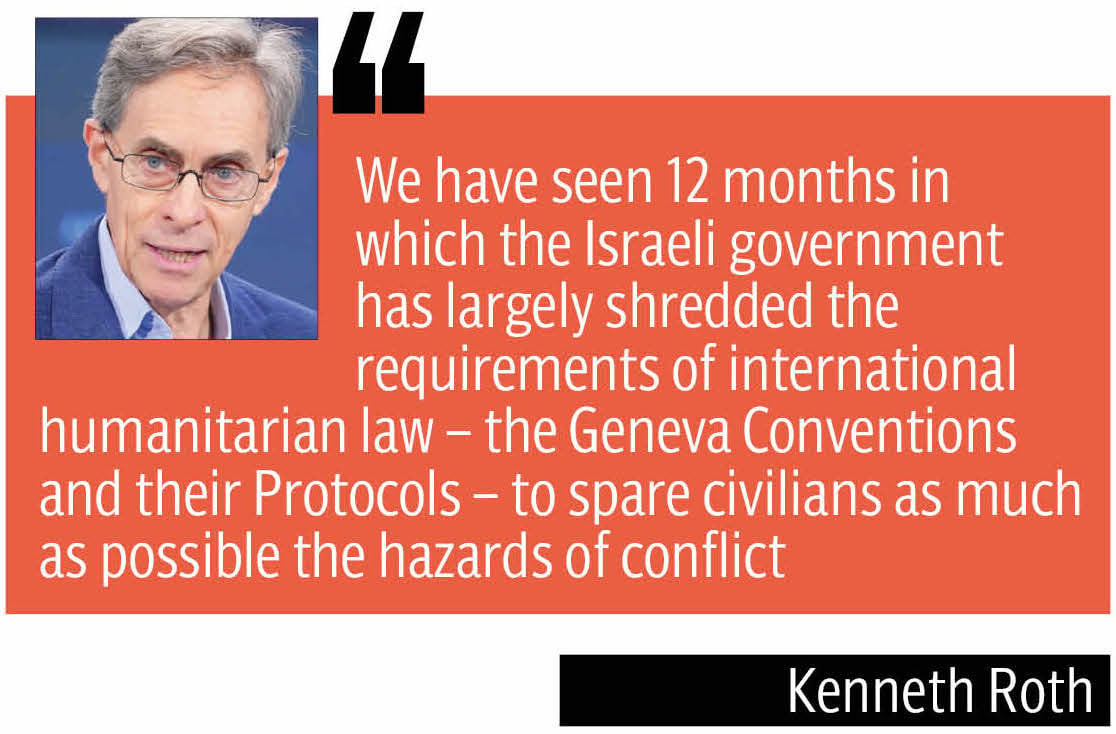
As global attention shifts from Gaza to Beirut, conditions in the Palestinian enclave remain dire. Kenneth Roth, former executive director of Human Rights Watch, reflecting on the conflict as it reaches its first anniversary, remarked: “We have seen 12 months in which the Israeli government has largely shredded the requirements of international humanitarian law – the Geneva Conventions and their Protocols – to spare civilians as much as possible from the hazards of conflict. Israeli forces have pulverised entire neighborhoods in Gaza – and attacked indiscriminately.”
“They have repeatedly attacked even military targets while imposing disproportionate harm on civilians, such as the use of massive 2,000-pound bombs, ostensibly to attack Hamas’s tunnels, even though they can kill civilians in a radius of two football fields,” he added.
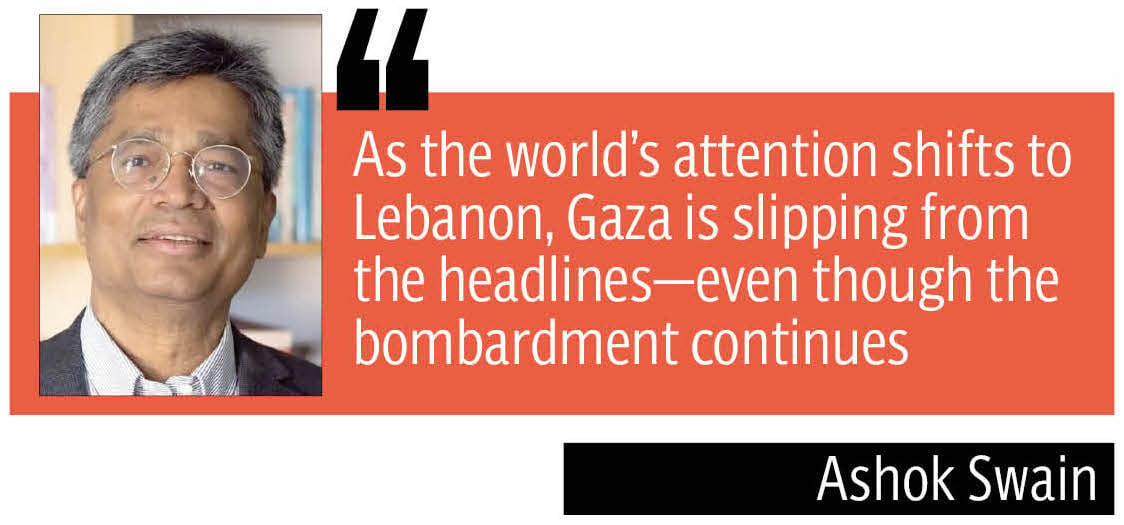
Amid the deepening humanitarian crisis, hopes for peace seem far off, cautioned Ashok Swain. “As the world’s attention shifts to Lebanon, Gaza is slipping from the headlines—even though the bombardment continues,” said Swain, a professor of peace and conflict at Uppsala University in Sweden. “Netanyahu will push forward with his offensive unless global leaders step up and make serious efforts towards a ceasefire.”
“I find the failure of countries in the Middle East, particularly those in the Gulf, far more troubling and difficult to understand compared to the actions of Western leaders. These Middle Eastern leaders share a common religion and culture, and are directly impacted by this conflict. Yet they remain largely silent, and when they do speak, their words lack strength or meaningful action. In many cases, it seems they are quietly aligned with Israel on this issue,” Swain added.
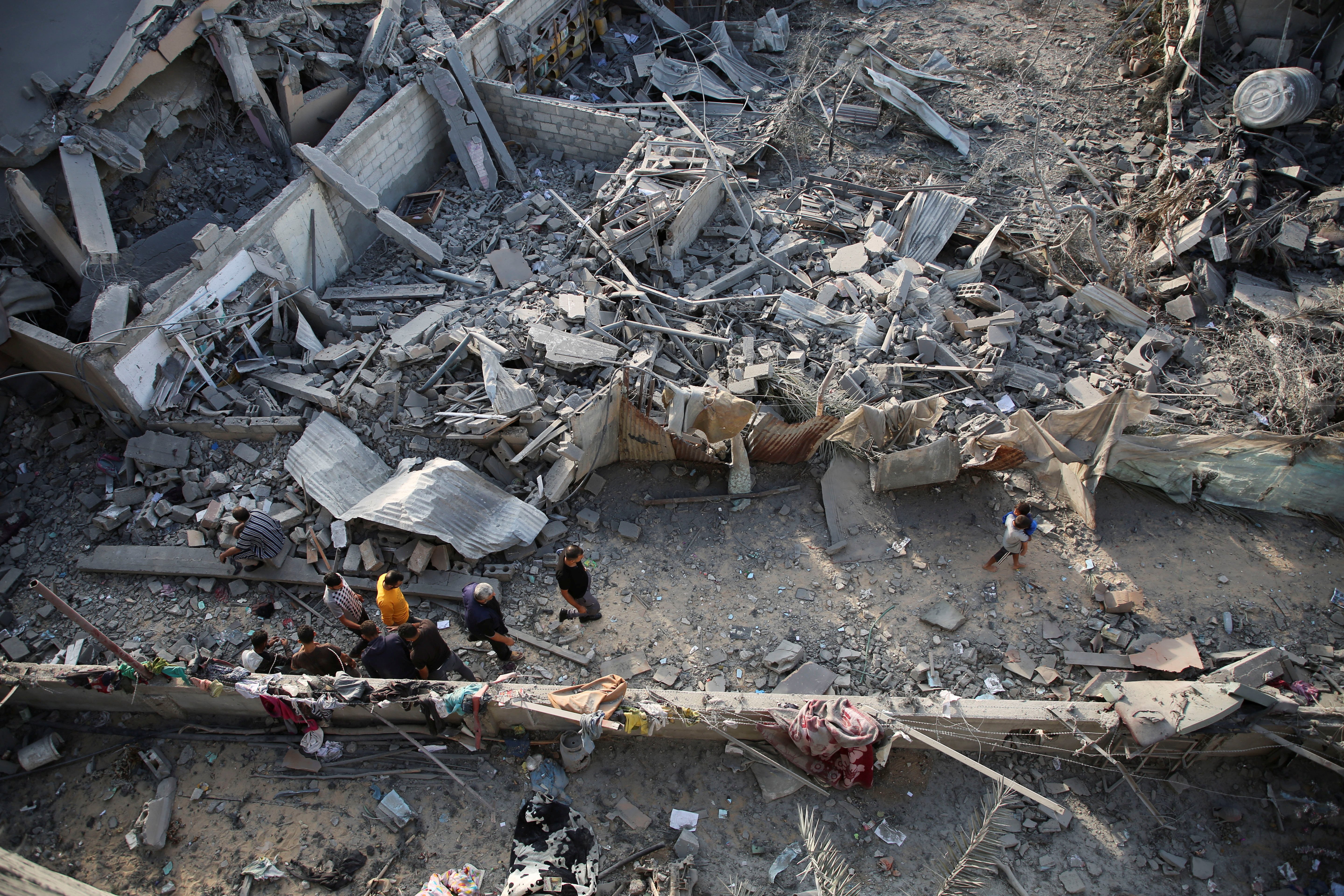
A horrific toll
Israel’s conduct of the war has exacted a horrific toll in Gaza, and as it extends into Lebanon, the familiar sounds of collapsing buildings and the cries of children and the elderly seem to fall on deaf ears.
In Gaza alone, nearly flattened by relentless Israeli bombardment over the past year, an estimated 42,000 Palestinians, the vast majority women and children, have lost their lives. More than 96,000 have been injured, with barely any functioning medical facilities available for treatment. A US-based vascular surgeon who recently visited Gaza reported that 80 per cent of the amputations he performed were on children. “And when I say kids, I don’t mean under 18—I mean under the age of eight,” he told Al Jazeera. Meanwhile, UN estimates suggest that 90 per cent of Gaza’s 2.3 million residents have been displaced at least once since the war began last October. Civilians are not the only group bearing the brunt of Israel’s assault. This week, the Committee to Protect Journalists (CPJ), a New York-based non-profit, reported that more journalists and media workers have been killed during the Gaza war than in any other year since it began documenting such deaths in 1992. At least 128 journalists and media workers, all but five of them Palestinian, have been killed. All but two of these deaths were caused by Israeli forces, according to a statement released by the CPJ to mark the first anniversary of the conflict. Aid workers have also paid a steep price in Gaza. The United Nations Relief and Works Agency (UNRWA) reported that 207 of its staff have been killed since the conflict began, many while in the line of duty. The victims included engineers, teachers, medical personnel, and humanitarian workers. In a statement released ahead of last month’s UNGA session, the global body said more than 500 attacks on health care have been recorded in Gaza. It also cautioned of the risk of famine with all 2.1 million residents in Gaza still in urgent need of food and livelihood. The actual death toll, primarily due to starvation, experts believe could be much higher than what is reported or documented.
According to Roth, Israel has pursued a starvation strategy in Gaza, allowing in dribs and drabs of humanitarian aid but not enough to prevent widespread hunger and often starvation. This tactic, the former executive director of HRW noted, is central to the charges brought by the International Criminal Court against Israeli Prime Minister Benjamin Netanyahu and Defense Minister Yoav Gallant. “The Lancet has estimated that deaths resulting from malnutrition and inadequate medical care are four times higher than the official death toll,” Roth added.
On the destruction of Gaza’s infrastructure, Roth pointed out that Israel has repeatedly targeted schools sheltering displaced people, often claiming that Hamas command centres are hidden there, with little consideration for the civilians killed in such strikes. “Similarly, the Israeli forces have shut down many of Gaza’s hospitals, citing the same rationale, leaving the population without healthcare at a time of critical need,” he said.
In Lebanon, the ferocity of the attacks has pushed the death toll past 2,000, even prompting the UN chief—now a 'persona non grata' barred from entering Israel—to express grave concern over the rising civilian casualties resulting from the ongoing Israeli assaults. But there is nothing that can stop Netanyahu.
According to the public broadcaster Kan and other Israeli media, the army is planning a “significant and difficult” attack on Iran in response to its launch of ballistic missiles at Israel, which followed the assassination of senior Iranian, Lebanese, and Palestinian officials. Media reports have also suggested an escalation of the bombing campaign in Lebanon, where more than 1.2 million people are already displaced, according to the Lebanese Prime Minister. “My obvious concern is that the Israeli government will demonstrate the same disregard for Lebanese civilian life as it has for Palestinian civilian life,” Roth said in response to the implications of the ongoing Israeli operation in Lebanon.
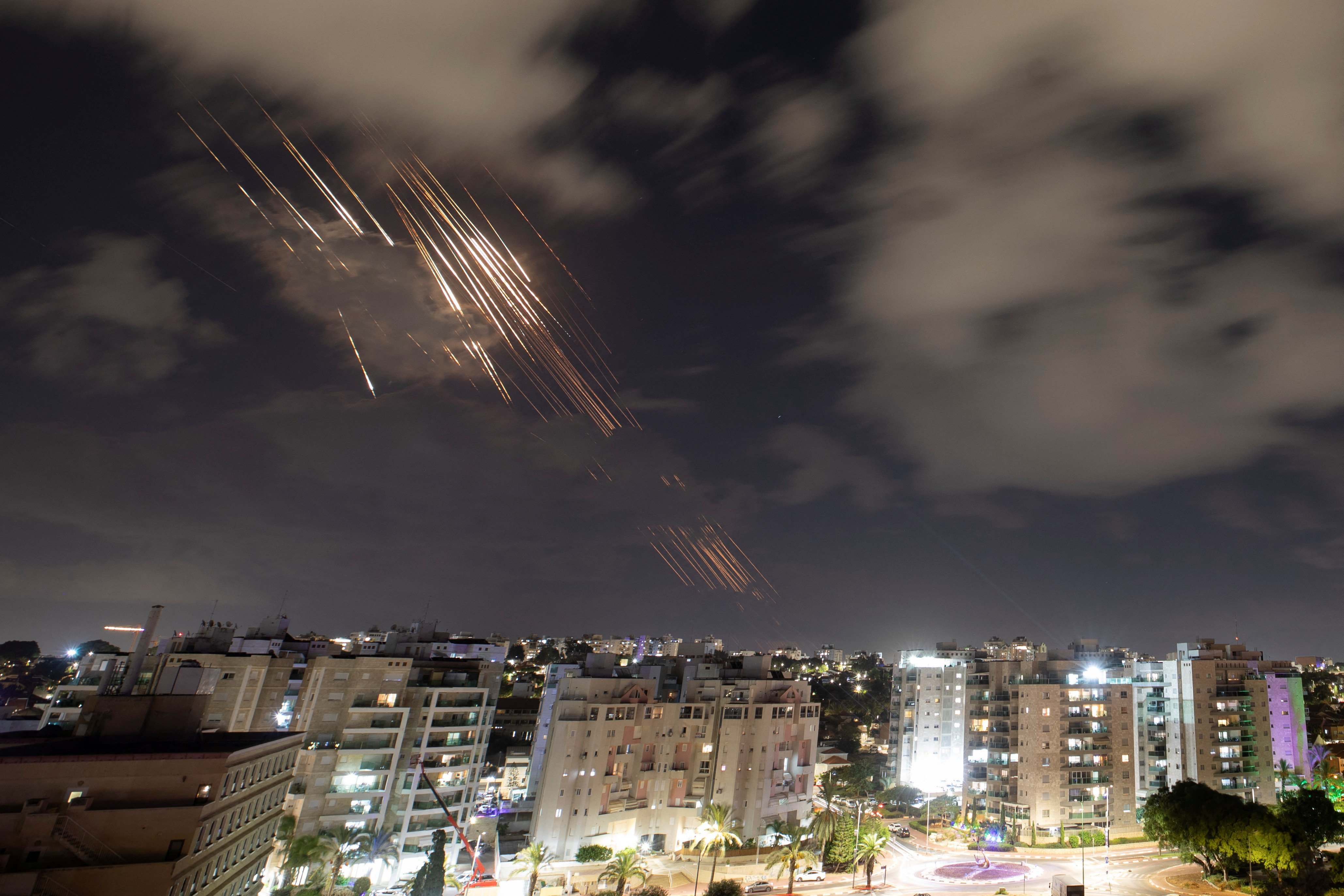
Changing the goalpost
Observers argue that Israel appears to lack a coherent strategic objective in the conflict, seemingly intent on extending both its timeline and scope. Over the past year, the goals have shifted, with the government repeatedly moving the goalposts as the situation evolves. In the West Bank, a territory under its control, 18 people were killed last week in a deadly airstrike on a refugee camp in Tulkarm, which the Israeli military claimed was carried out to target a local Hamas leader. Among the casualties, according to Palestinian reports, was a family of four, including two children—Mohammed Abu Zahra, his wife Sajaa, and their children, Karam and Sham.
“What Israel seems to want by expanding the conflict—from Gaza to the West Bank, Lebanon, Iran, and even Syria and Yemen—is unclear. Even Israelis might not fully understand what the end goal is. The real question Israel should be asking is whether it is more secure now than it was before October 7th. After killing more than 41,000 people in Gaza and thousands more in the West Bank and Lebanon, has its security improved? Initially, the objective was to defeat Hamas. Has that been achieved? No. Now it's moved to Hezbollah, and then Iran. There seems to be no clear strategy guiding these actions, just a cycle of escalation,” said Swain.
“From what I see, the Netanyahu administration’s main goal is to hold onto power. After the assassination of Nasrallah, his popularity surged, and Mossad regained some of its lost prestige after the October 7th attack. But beyond that, the overall security situation remains deeply unstable,” the Sweden-based professor observed.
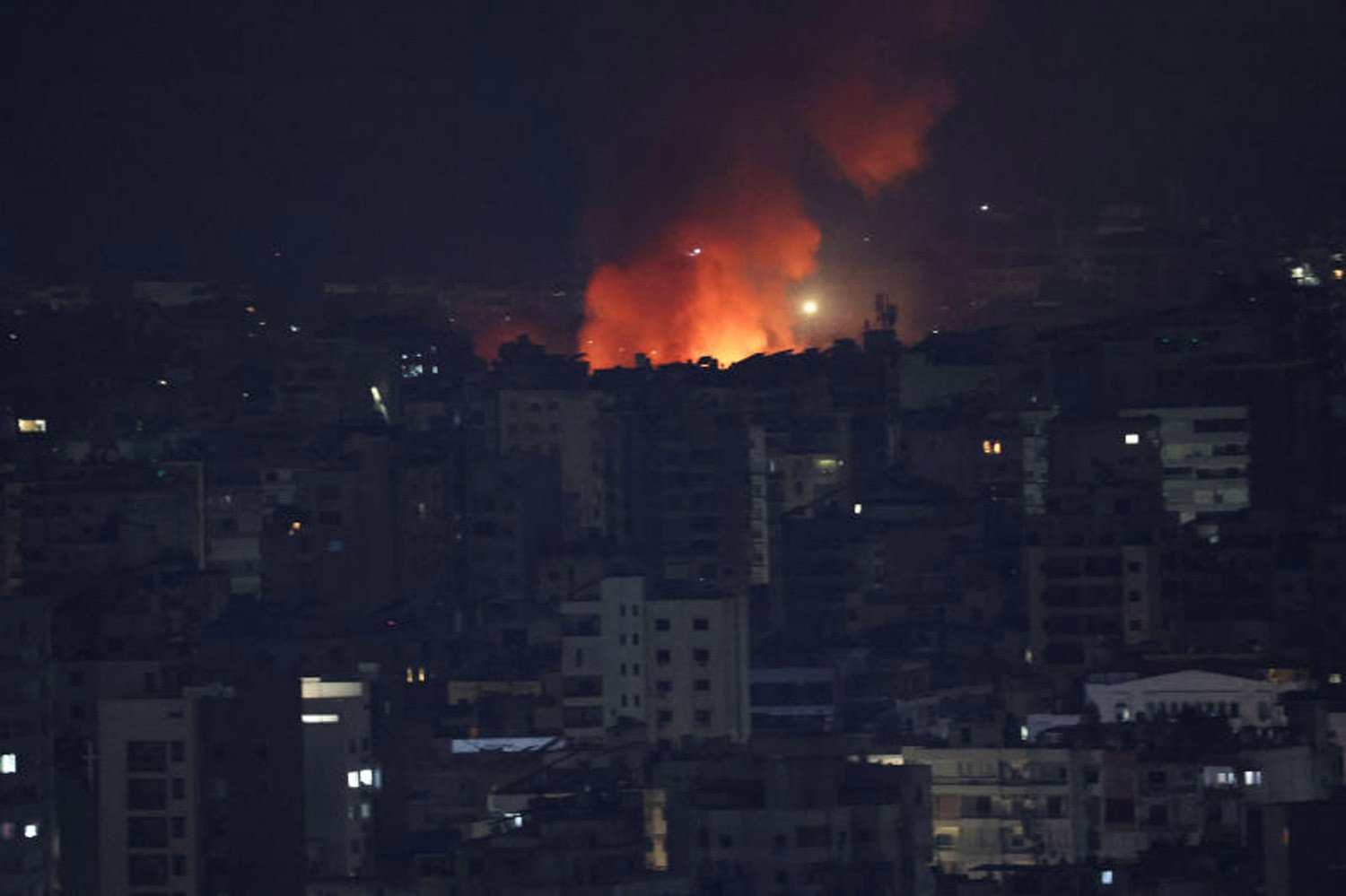
Has the UN failed?
Since the start of the Gaza conflict, multiple resolutions calling for an immediate ceasefire have been put forward at the United Nations. Yet, the global body has been unable to broker a peace deal. At last month’s UN General Assembly, Latin American leaders were among the most vocal in condemning Israel’s actions. Chile’s president emphasised that the majority of the world’s population belongs to Latin America and the Global South, noting that while these nations have pushed for a ceasefire, efforts have been thwarted by vetoes from the US and Israel’s Western allies, leaving the UN’s ability to advance peace in question.
In June, after vetoing most earlier resolutions and abstaining on one presented in March, the UN Security Council backed a US-sponsored ceasefire resolution for Gaza. The plan called for a ‘full and complete ceasefire’, the release of hostages held by Hamas, the return of the remains of dead hostages, and the exchange of Palestinian prisoners. However, far from moving towards peace, Israel has intensified its assault on Gaza and Lebanon, with little progress towards any diplomatic resolution.
When asked whether the UN had lost its relevance, Kenneth Roth, HRW's former executive director, replied: “We shouldn’t blame ‘the UN.’ In this context, the UN is largely a forum where the world’s governments gather. The fault lies with the governments themselves—mainly the US—for using its veto in the Security Council to block efforts to pressure Israel into agreeing to a ceasefire in exchange for the release of Hamas hostages. Instead, Netanyahu continues to invent new pretexts to prolong the conflict.”
Swain noted that Israel has long shown disregard for United Nations General Assembly resolutions, largely protected by the US in the Security Council. “What is particularly alarming now is the open threats to the UN Secretary-General and Israel’s blatant defiance of the International Court of Justice,” he said.
Under Netanyahu’s regime, Swain argued, Israel is increasingly seen as an international pariah. “While it continues to receive backing from the US and a few key European countries, that support appears more out of obligation than conviction. In terms of global moral standing, Israel has become isolated. Even its allies—such as the US and Germany—are finding it increasingly difficult to justify both Israel’s actions and their own support,” the Sweden-based academic concluded.
When asked about Israel’s scorn for the UN Secretary General, Swain said: “António Guterres has taken a firm stance on the conflict, one that diverges from Israel’s expectations. Israel is particularly aggrieved with Guterres because it has managed to keep Western powers—the US and Europe—largely silent on its actions. Historically, the UN Secretary General has aligned with Western positions, but in this case, Guterres hasn’t hesitated to criticise Israel. He has openly condemned Israel's actions, especially in light of the deaths of over 200 UN workers in Gaza and Lebanon.”
“As both the chief diplomat of the world and head of the UN, Guterres is profoundly disturbed by Israel’s conduct. He remains one of the few prominent voices from the Western bloc openly critical of Israel, which has intensified the vitriol directed at him by the Israeli government. This independent stance explains much of Israel’s frustration with the current Secretary General,” he explained.
“As both the chief diplomat of the world and head of the UN, Guterres is profoundly disturbed by Israel’s conduct. He remains one of the few prominent voices from the Western bloc openly critical of Israel, which has intensified the vitriol directed at him by the Israeli government. This independent stance explains much of Israel’s frustration with the current Secretary General,” he explained.
Right to self-defence
Throughout the conflict in Gaza, Israeli forces have bombed residential areas, dropped what one security expert estimates to be over 80,000 tons of explosives, and systematically degraded every medical facility, sparing neither shelters nor schools. Similar tactics have been employed in Lebanon, where buildings have been reduced to rubble and hospitals targeted under the pretext of eliminating Hezbollah operatives.
The UN’s human rights chief, Volker Turk, has described the military assault as having unleashed a “nightmarish” situation in the besieged Palestinian enclave. Despite mounting calls for a ceasefire and a worsening humanitarian crisis, with thousands at risk of starvation due to Israel's blockade of the territory —Netanyahu shows no signs of halting the assault. All indications suggest the conflict will be prolonged, with the potential to claim many more lives.
Israel, supported by its allies, argues that the military response is a legitimate act of self-defence following the Hamas attacks, which killed 1,200 people and injured over 5,600 in the southern part of the country. However, this raises a critical question: does Israel’s right to self-defence extend to the killing of thousands of Palestinians and the wounding of thousands more since then?
“Self-defence addresses the justification for going to war, but not the conduct during it,” said Roth. “Even if Israel is defending itself, it must still comply with international humanitarian law, which the Israeli military has repeatedly violated by committing war crimes,” he explained.
When asked to comment on who should be blamed for the escalating situation, Roth said: “There is fault on all sides – on Hamas for attacking Israeli civilians on October 7, 2023 and continuing to hold them hostage; on Hezbollah for firing rockets into Israel territory, often at civilian areas; and on the Israeli government for responding in way that has yielded such an enormous civilian toll.”
“The US government also shares the blame for aiding and abetting Israeli war crimes by continuing to provide the means to commit them and by not using its leverage – the conditioning of arms sales and military aid,” he added.

Biden’s policy
With Gaza still facing heavy bombardment, President Joe Biden—no longer seeking re-election—faces mounting criticism for his inability to leverage US influence to end the conflict. His so-called red line in supporting Benjamin Netanyahu has proven fluid. While calling for a ceasefire, his administration authorised $3.5 billion in military aid to Israel, much of which has been used in Gaza and now in Lebanon.
Since the onset of the conflict, Biden has approved over 100 military aid transfers to Israel, according to The Washington Post. The Council on Foreign Relations, a New York-based think tank, noted that the US has provided at least $12.5 billion in military aid. This includes $3.8 billion from a March 2024 bill and $8.7 billion from an April supplemental appropriations act. However, in May, a US government report found that Israel had used weapons provided by Washington “in instances inconsistent with its International Humanitarian Law obligations.” Days later, the White House temporarily paused the shipment of large bombs ahead of a planned assault on Rafah, southern Gaza, though other forms of military assistance continued. “Civilians have been killed in Gaza as a consequence of those bombs and other ways in which Israel targets population centres,” Biden conceded in a CNN interview. The halt was short-lived, and US support for Israel resumed largely unchanged.
A Politico report, citing six Biden administration officials, revealed that the White House tacitly encouraged Israel to invade Lebanon while staying quiet for PR purposes. This stance faced opposition from the Pentagon, State Department, and intelligence agencies. Reuters later uncovered internal warnings from senior Pentagon officials about the potential for Israeli war crimes, delivered shortly after the conflict began. Emails show that Dana Stroul, then Deputy Assistant Secretary of Defense for the Middle East, expressed concern on October 13th that mass evacuations in Gaza could lead to accusations of war crimes. Stroul relayed a chilling assessment from the International Committee of the Red Cross. Her warnings, however, were reportedly ignored by Biden’s inner circle.
These emails, not previously reported, highlight internal alarm within the Pentagon and State Department over Israel’s escalating offensive, with fears it could violate international law and damage US relations in the Arab world. There was also internal pressure to shift the administration's messaging—from staunch solidarity with Israel to a more balanced approach that included concern for Palestinians and a stronger emphasis on humanitarian aid to Gaza. Yet, Biden’s public stance remained largely unaltered.
When asked about Biden’s peace efforts, Roth observed, “There is no question that Biden has worked for a ceasefire in Gaza and urged restraint towards Lebanon and Iran. But Netanyahu knows there are no consequences for disregarding Biden’s pleas because Biden refuses to condition military aid.”
“In short, Biden has the leverage to compel the Israeli government to comply with his demands; he just chooses not to use it,” the former executive director of HRW added.
Swain, an academic specialising in conflict and peace studies, offered a more direct critique of the West's overall unwavering support for Israel, questioning its genuine commitment to peace. “Their commitment to peace has always been questionable,” he stated.
“The West has long supported Israel under the guise of responsibility, often claiming they are not complicit in humanitarian crises. In Ukraine, they maintain rhetoric about civilian protection, but in Gaza, even that pretence has vanished. Their credibility is gone,” he continued.
This erosion of credibility, he said, has stripped the West of the moral high ground it once claimed. “Europeans, especially, no longer preach to the world about right and wrong because their failure in Gaza is so glaring. No one takes them seriously anymore,” Swain concluded.
